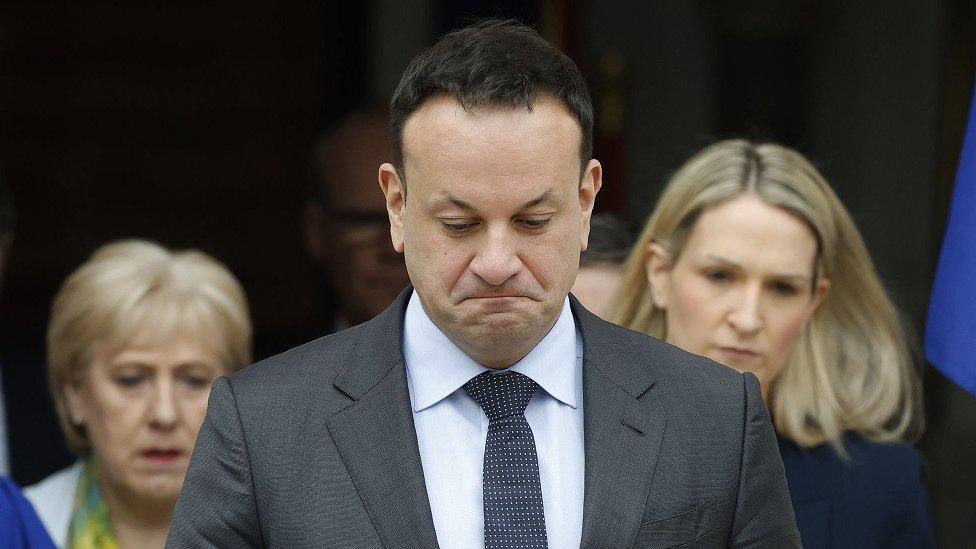Simon Harris set to become new Fine Gael leader later
- Published
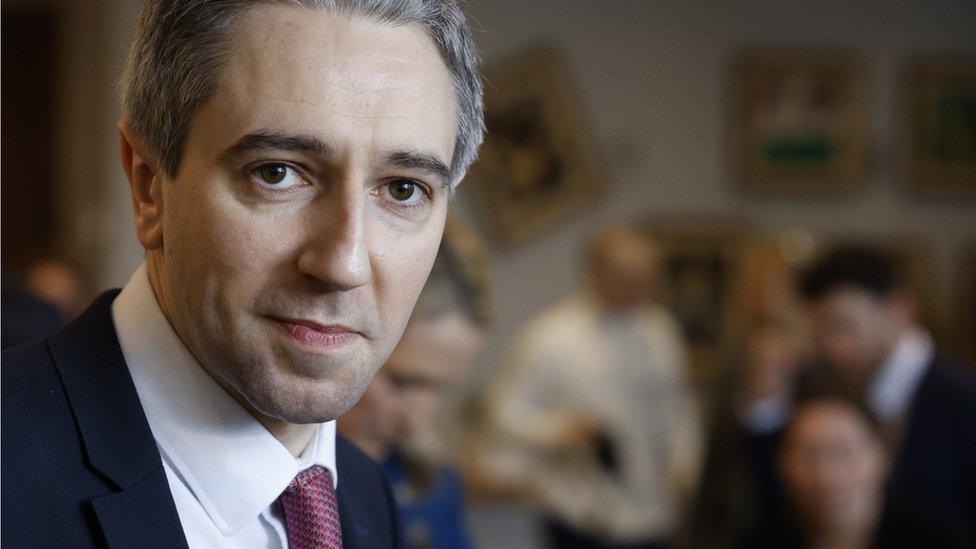
Simon Harris is set to become Fine Gael's new leader after no other candidates ran in the leadership contest
Simon Harris is expected to become the new leader of Fine Gael.
Mr Harris, who is currently Ireland's minister for further and higher education, was the only candidate to seek the party leadership.
He is set to replace Leo Varadkar, who announced on Wednesday he was stepping down as party leader and taoiseach (Irish prime minister).
Nominations closed at 13:00 local time on Sunday.
He was the only candidate for the position at the close of nominations.
He is due to outline his key priorities in a speech later.
A memo sent to Fine Gael politicians on Friday said the announcement of the party leader would be made at the conclusion of the party's Midlands North West European selection convention in Athlone on Sunday.
It added that if only one person is nominated, the returning officer will confirm that person as party leader.
Mr Harris has a clear run at the top job after other ministers who were viewed as potential competitors ruled themselves out.
He was the early favourite, with many backing the 37-year-old before nominations even opened.
Ministers Helen McEntee, Paschal Donohoe and Heather Humphreys were among those to throw their support behind Mr Harris.
Speaking on Friday, Mr Harris said he was "overwhelmed and honoured" by the support he had received over the last few days.
Why is there a leadership contest?
On Wednesday, Mr Varadkar caused shock when he announced he would be stepping down as Fine Gael leader immediately, and would resign as taoiseach as soon as his successor was selected.
He said he was resigning for "personal and political reasons" and was "not the best person for the job anymore".
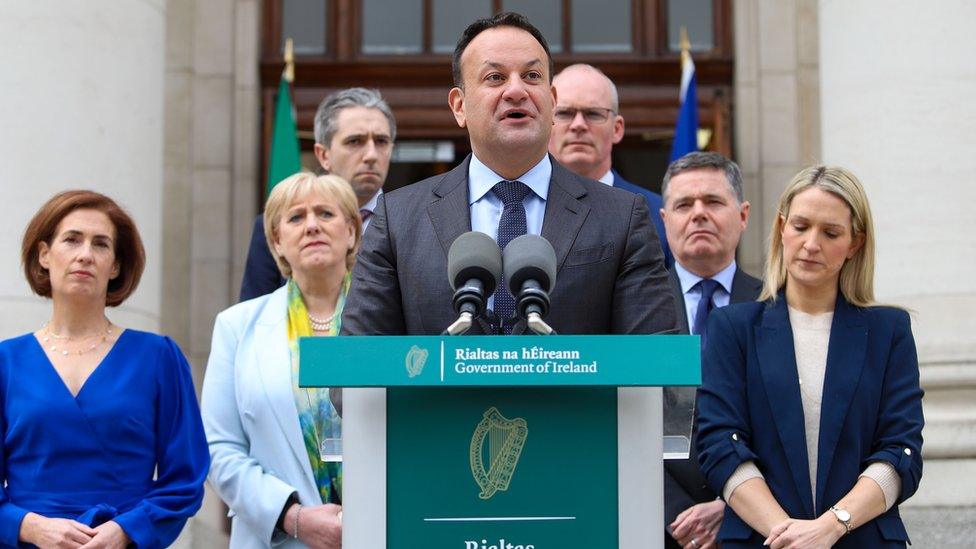
Taoiseach Leo Varadkar announced his resignation on Wednesday
He also denied any "conspiracy theories" over the decision, telling reporters in Brussels there was no ulterior motive or new job on the cards.
Mr Varadkar's resignation paved the way for a party leadership contest, but as he heads the current coalition government alongside Fianna Fáil and the Green Party in Dublin, his successor is also expected to take over as taoiseach.

Who is Simon Harris?
At 37, Mr Harris is set to make history as Ireland's youngest taoiseach - taking over the top role a year younger than his predecessor did in 2017.
He first entered the Dáil (lower house of Irish parliament) over a decade ago at the age of 24 as TD (MP) for Wicklow.
Mr Harris has had a rapid rise through the party ranks, landing his first cabinet role, as health minister, five years later in 2016.
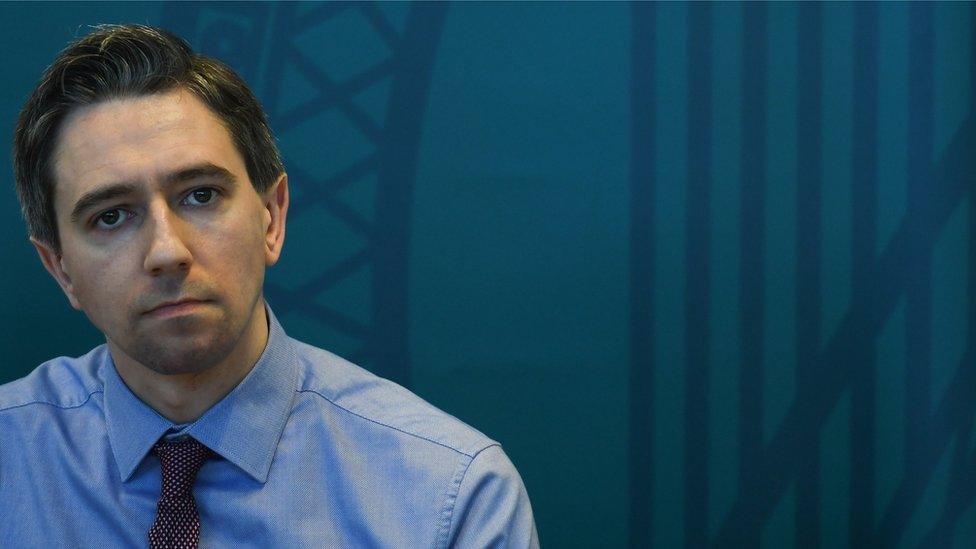
Simon Harris has served as a minister in the Irish cabinet for the past eight years
In this role, he oversaw the Republic of Ireland's vote to overturn its abortion ban and the country's cervical cancer screening scandal.
He also oversaw the initial response to the Covid-19 pandemic, before he was replaced when the new coalition government formed in 2020.
He has since been minister for further and higher education, research, innovation and science, and briefly took on the justice portfolio.
Read more about Simon Harris - a man in a hurry to the top
Fine Gael Senator Emer Currie, the party's Northern Ireland spokesperson, described Mr Harris as part of a new generation of nationalist politicians "not shy about their nationalist aspirations".
"I think that he will also be very respectful of reconciliation politics," she told the BBC's Sunday Politics Programme.
"He is a very compassionate person and I think the empathy that he has, and understanding of victims of the north, I am very encouraged by.
"He will be somebody who is going to very much follow the reset of relationships post-Brexit and has a very keen understanding and respect for the Good Friday Agreement."
Senator Currie also said the new party leader is "very much interested in all-island issues", in particular, giving Northern Irish students more opportunities to study in the Republic of Ireland.

Related topics
- Published21 March 2024
- Published20 March 2024
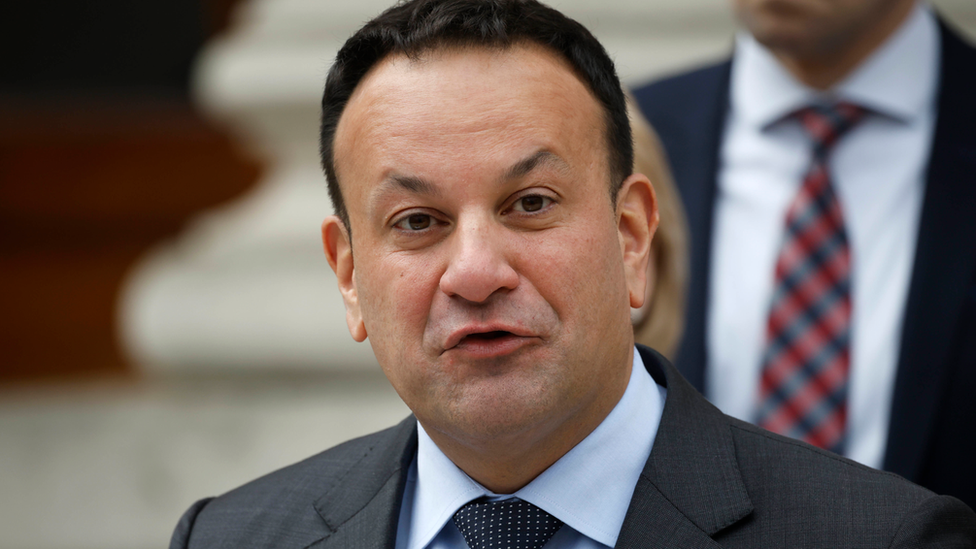
- Published20 March 2024
